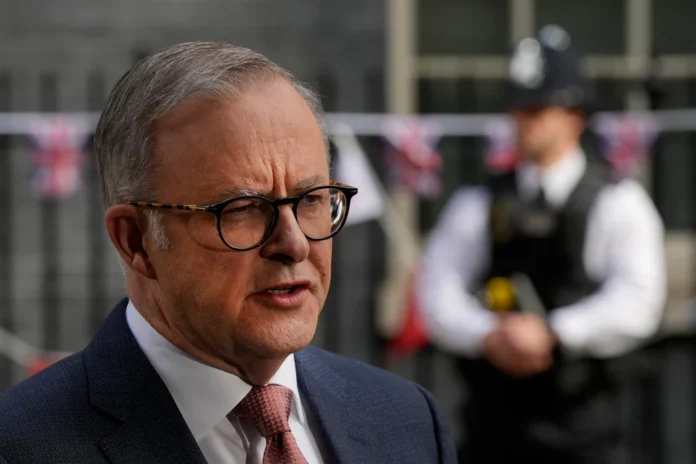Four out of five diverse young Melburnians invited to talk politics say they are turned off by the major parties and the two-party system. Here’s what they believe could help democracy thrive.
Ryan Stewart, 29, is not hopeful about Australia’s political future. The performance artist expresses deep cynicism toward the motives of elected leaders, going so far as to suggest the system might need to be “razed to the ground” before meaningful change can occur.
Stewart is one of five diverse young Melburnians – aged 19 to 29 – who agreed to meet and discuss their views on political engagement, party loyalty, and policy priorities. Of the group, four express serious dissatisfaction with the two-party system and a declining trust in mainstream politics.
A Spectrum of Opinions
Liberal Loyalty
Nineteen-year-old university student and Brighton resident Jenson Galvin is the outlier in this cohort, identifying as a Liberal Party member. Arriving in a Liberal-blue suit jacket, he acknowledges that conservative politics is not particularly popular with his age group:
“When we eventually realise that – and it sounds terrible – but money is the most important thing, conservative politics will rear its head. I value financial independence, exports, and GDP.”
Galvin once ran (unsuccessfully) for Bayside Council to demonstrate that younger Australians can provide local solutions. He believes the primary role of government should be to listen, and he hopes more young people will work within the system to shape it.
Progressive Disconnect
Others in the group, though passionate about causes like climate change, social justice, and global humanitarian issues, feel alienated by the major parties. Queer, non-binary performance artist Ryan Stewart often votes Greens but laments the “selfishness and ego” they perceive in Australian politics:
“Watching question time is a joke. Politicians are yelling at each other and fulfilling some ego-driven desire for power. It’s disheartening.”
Youth Worker’s Perspective
Ikram Mahamed, 23, works at a multicultural youth organisation and grew up in a Labor-voting household. Yet she remains unconvinced about where her support will lie in the next federal election:
“I don’t know who I’m voting for. I look at policy rather than following a party. Some of the rhetoric, like Peter Dutton’s comments about African Australians, I can’t forgive.”
Centrist Leanings
A 27-year-old construction administrator, known here as Abdulmalik, says he splits his votes depending on what he believes each level of government does best. While he supports Labor in federal elections—citing international affairs and defense—he prefers the Liberals for Victoria’s state government in hopes of better debt management:
“I’m losing trust in politicians. They seem self-interested, and money plays too big a role in decision-making.”
The Artist’s Concern
Visual artist Mia Boe, 27, maintains a generally progressive stance, especially regarding climate change. She regrets that there aren’t more open forums for serious discussion on urgent issues:
“Climate change is going to affect us all. We’re well past the point of no return, but it never feels like a top priority when it should be.”
Disaffection vs. Apathy
Despite widespread frustration, these young Melburnians reject the notion of apathy. While major parties leave them cold, many are highly engaged in causes they care about, from environmental protection to alleviating student debt. Yet they question whether the current two-party system is built to address these priorities effectively.
Stewart’s Radical Critique
Stewart believes politics is too often an arena of “ego” and performative conflict, with key issues sometimes sidelined in favor of point-scoring. They note:
“It’s adults yelling at each other. Can’t they work together for the country’s good? I don’t see constructive collaboration.”
Mahamed echoes these concerns, highlighting how minority communities are regularly overlooked or even demonised:
“We need leaders who listen to everyone, but I don’t see that often. There’s a lot of focus on economics, and that’s important – but not at the expense of real people’s lives.”
Finding Hope Through Dialogue
As the evening wraps up, the group members reflect on their conversation. For many, simply “breaking bread” with people who hold different perspectives offers a glimmer of hope that genuine communication can transcend political divides.
“Look at the conversations we’re having,” says Mahamed. “We don’t do this every day, but if we did—if we could hear different perspectives more often—I think we’d develop more understanding.”
Stewart agrees, pointing out that although they anticipated tension, they were pleasantly surprised:
“We found more common ground than I expected. We actually listened to one another.”
Even Galvin, despite feeling isolated as the sole card-carrying party member in the group, underscores the importance of maintaining a shared civic space:
“One of the best parts of Australian democracy is we can have these discussions without hating each other. We may be facing big challenges, but at least we can sit together, talk, and not lose respect for one another.”
Ultimately, the group’s conversation highlights a generation torn between disillusionment with formal structures and passionate commitment to issues of social and environmental justice. They may not have an immediate blueprint for overhauling a political system they deem flawed, but they cling to the hope that honest dialogue and a willingness to listen could be the seeds of long-term change.
